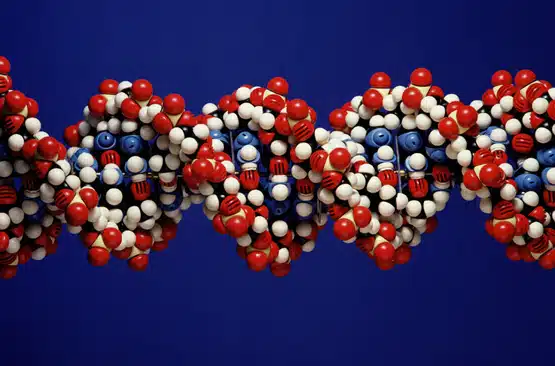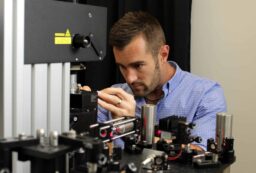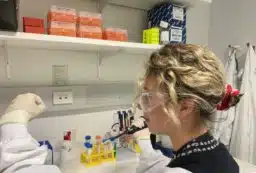A radical new theory that could dramatically alter the way scientists view the evolution of life has been recently accepted for publication in the leading “Journal of Molecular Evolution”. Supported by an increasing body of evidence, the theory proposes that the nucleus of our cells evolved from a virus that infected ancient bacteria-like organisms.
Project description: The question, ‘where did we come from?’ is one of the basic questions of humankind. In their own way science, philosophy and religion each attempt to provide and answer to this question.
At the broadest level, the established scientific answer to this question is that we have evolved from simpler life forms through the process of evolution.
A theory proposed by Dr Philip Bell of Macquarie University, outlines a radical new process by which simple bacteria-like cells could have evolved into the complex type of cells found in humans.
This model predicts that the nucleus, the structure that contains the blueprint for the development of all complex organisms, has evolved from a virus.
According to the new evolutionary process, all eukaryotic cells (including those found in humans) descend from a hybrid of three organisms: 1) A bacterium-like archaea related to the organisms that produce methane in swamps and sewerage plants 2) A bacterium related the organisms producing diseases such as typhus 3) A virus related to those that cause diseases such as smallpox and swine fever.
This model will result in a profound shift in the way that we understand the relationships between organisms, and radically alter our understanding of the evolution of life on earth.





 Fresh Science is on hold for 2022. We will be back in 2023.
Fresh Science is on hold for 2022. We will be back in 2023.